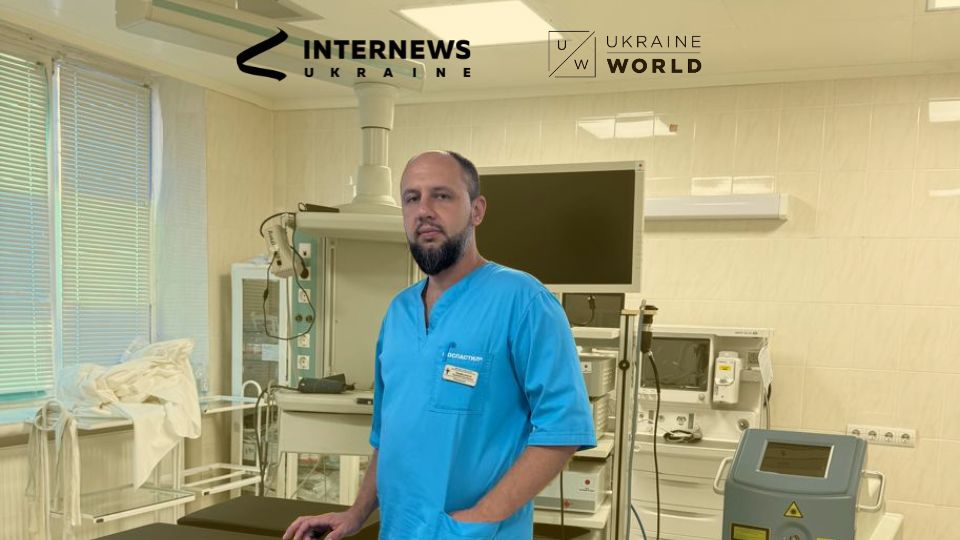
Almost no one notices the air raid siren in Okhtyrka, the town where Yevhen Trofymenko works. Not because this signal has become safe, but because it has become a terrifying soundtrack to the wartime everyday life of a small town 30 km from the border with Russia. Yevhen, like all medical professionals, is celebrating the Day of the Medical Worker of Ukraine in the same conditions, but he is not talking about the holiday. He is remembering the first days of the full-scale invasion.
“I remember the explosions on February 24, 2022, Okhtyrka was one of the first to take action. It seemed like the earth was shaking under my feet then. It was very scary at first from these sounds, but now, strange as it may sound, I got used to it. Because the anxiety simply does not stop, so if you listen to all the safety advice, you would have to be in shelter all the time. As a surgeon, people need me, so I go to work every day, no matter what,” Yevhen shares.
The young surgeon came to this town several years ago, but not a single day after the full-scale invasion did he want to leave it.
“In the first days of the invasion, even weeks, I was in the hospital all the time, I didn’t even go home. And not only me, my colleagues did the same. I even slept in the hospital, although there was almost no time to sleep in those days. People came in by the dozens with lacerations from shelling. In addition, I am a urologist. So injuries are not my specialization. But then everyone worked as one, I grabbed any job, or to be useful and help the wounded,” says Yevhen.
Remembering one day in March 2022, Yevhen still cries.
“I remember they brought a girl, about the same age as my daughter. She was very badly wounded. When she was walking down the street with her grandfather, the shelling started, the grandfather was killed immediately, she barely survived. But the situation was so serious, we had to act instantly. In order not to lose a second, I rushed to the stairs and carried her to the operating room myself. I ran as fast as I could. The operating room was already ready, we did everything we could. I also helped. But we couldn’t save her...,” the doctor recalls, wiping away tears.
More than three years have passed since that moment, and Yevhen has returned to his specialty - urological routine surgeries. But you can’t call them routine, because they often take place to the roar of explosions and martyrdom.
You can’t stop the operation, if it has started, then of course I won’t go anywhere. There were explosions right under the hospital window more than once, but I continued my work. It’s even strange, but I am so concentrated during the process that I don’t pay attention to anything. So neither my hand trembles, nor the noise distracts me. My nervous system has also gotten used to it
Ukraine has a critical shortage of doctors, especially in front-line hospitals. Psychological burnout, constant danger, and work overload are all signs. After all, patients remain in the city and the need for medical care does not decrease. In addition to those wounded from shelling, people also need planned operations.
“I am where I am needed, this is my land, my native region, so I don’t want to go anywhere. Moreover, when there is an opportunity to learn and develop in such conditions, thanks to, for example, an educational project from the ZDOROVI charity agency and the International Rescue Committee, my motivation becomes even greater. They helped the hospital get urological equipment. So now I can operate on more complex cases. Previously, for this, patients had to be sent to Sumy, but now I can perform the necessary operations myself. There should be many more such programs so that even during the war, doctors can develop and help people. So this is my choice, I work in a front-line hospital, I understand all the risks, but I will help as much as I can despite all the threats,” shares urologist Yevhen Trofymenko.
